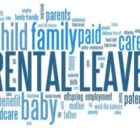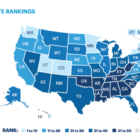While the Trump administration seeks to dismantle any and all things Obamacare, Connecticut legislators, in the waning days of this year’s legislative session, passed a bill that protects important health benefits that are part of the 2010 reform package. Legislators also passed a law that seeks to reduce the times police officers arrest both the victim and the aggressor on domestic violence calls, or so-called “dual arrests.” And they, in an attempt to close the gender wage gap, passed a bill that prevents potential employers from asking job applicants about salary history. About that last one, Gov. Dannel P. Malloy said, “This inequity is perpetuated by the practice of asking for salary history during the hiring process, which can disproportionately ensure that women who were underpaid at their first job continue to be underpaid throughout their careers, creating a cycle of poverty and causing real harm to families.”
But let’s give an honest grade for what happened—and what didn’t happen—in the session that ended at midnight May 9. Connecticut legislators’ effort was a solid C for what they could do for families—or, if we’re feeling generous, maybe a C+. Too many pieces of legislations that could have made a big difference in a small state were left on the table, died in committee, or never got traction.









